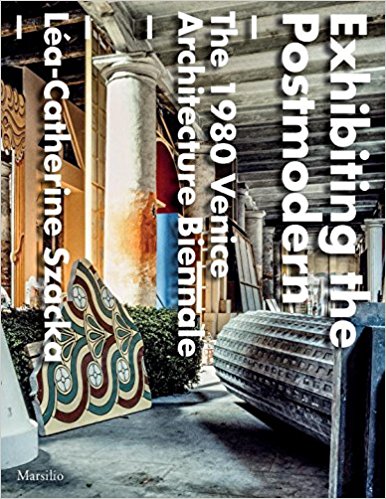
Jean-Louis Cohen, Sheldon H. Solow Professor of History of Architecture at the Institute of the Fine Arts at New York University.
“Szacka’s book opens up our understanding of architecture exhibitions, showing us that they extend beyond the gallery to include a complex scenario of debates, politics and projects. Relying on significant archival work and interviews with the exhibition’s main protagonists, Szacka convinces us that the Venice Architecture Biennale is central to our understanding of architectural theory and practice since the late 1970s.”
Wallis Miller, Charles P. Graves Associate Professor of Architecture at the University of Kentucky.
“In the fifties and sixties most Italians saw industrial modernity, and architectural modernism, as a promising pathway. In the eighties, modernity and modernism were almost universally decried as a catastrophic error. In between, stood – in Italy – two energy crisis, terrorism, political mayhem, stagflation, industrial meltdown. The anti-modern reaction that followed was known in Italy as “il riflusso” (the ebb). In the rest of the West, something very similar was then known as postmodernism. The two storylines (one specific to Italy, one not) crossed paths in Venice in 1980: as Léa-Catherine Szacka brilliantly recounts in this book, The Presence of the Past left an indelible mark on late twentieth-century culture at large. Now, thanks to this book and to Szacka’s painstaking scholarly work, we can start to assess its lasting legacy and influence.”
Mario Carpo, Reyner Banham Professor of Architectural Theory and History, The Bartlett School of Architecture, UCL London.